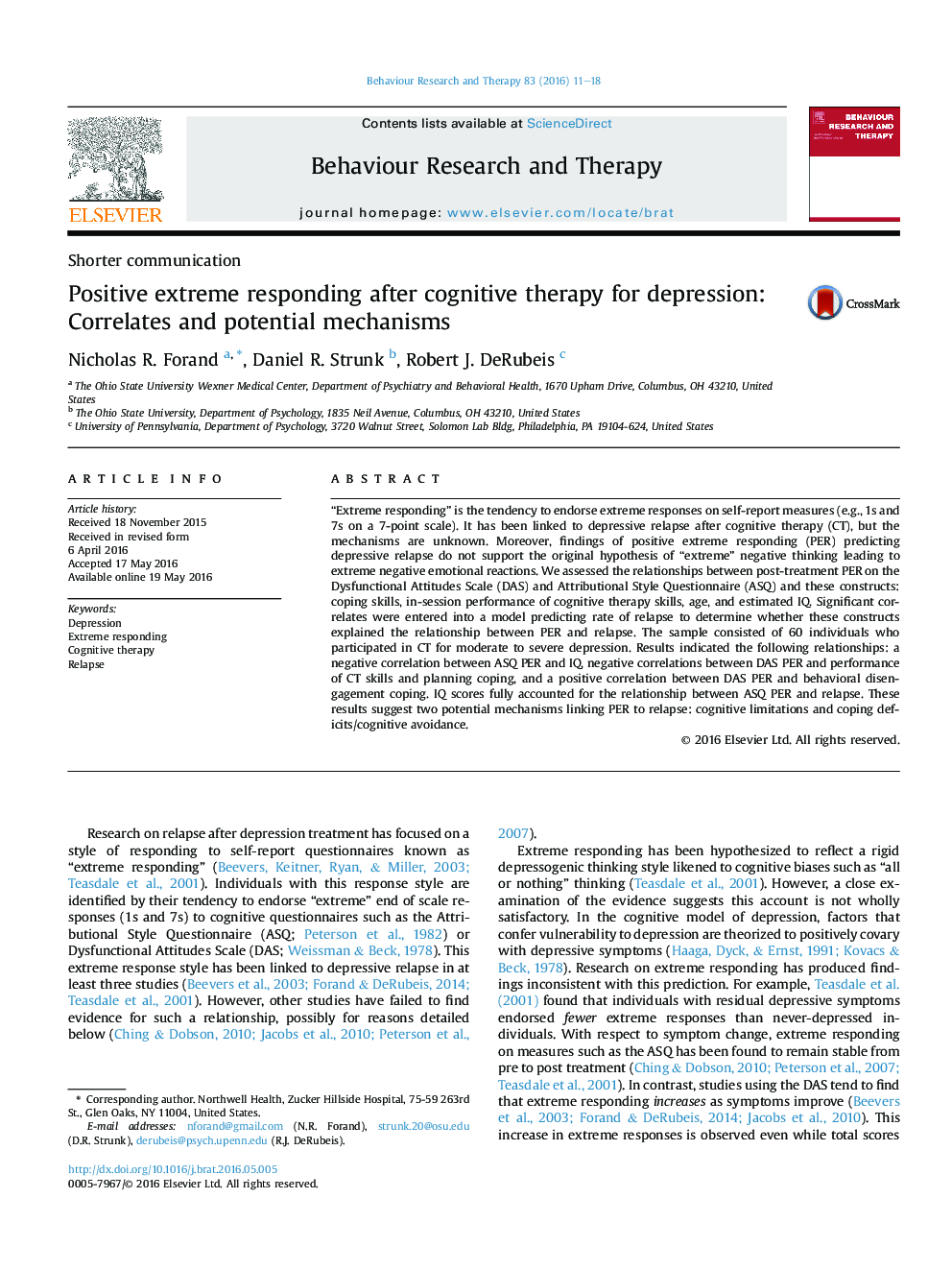| کد مقاله | کد نشریه | سال انتشار | مقاله انگلیسی | نسخه تمام متن |
|---|---|---|---|---|
| 901765 | 1472766 | 2016 | 8 صفحه PDF | دانلود رایگان |
• Depressive relapse after CT is predicted by positive extreme responding (PER).
• PER on the DAS is associated with in-session and self-reported coping deficits.
• PER on the ASQ is associated with lower estimated IQ.
• IQ confounds the relationship between ASQ PER and relapse.
• PER might be associated with cognitive avoidance or cognitive limitations.
“Extreme responding” is the tendency to endorse extreme responses on self-report measures (e.g., 1s and 7s on a 7-point scale). It has been linked to depressive relapse after cognitive therapy (CT), but the mechanisms are unknown. Moreover, findings of positive extreme responding (PER) predicting depressive relapse do not support the original hypothesis of “extreme” negative thinking leading to extreme negative emotional reactions. We assessed the relationships between post-treatment PER on the Dysfunctional Attitudes Scale (DAS) and Attributional Style Questionnaire (ASQ) and these constructs: coping skills, in-session performance of cognitive therapy skills, age, and estimated IQ. Significant correlates were entered into a model predicting rate of relapse to determine whether these constructs explained the relationship between PER and relapse. The sample consisted of 60 individuals who participated in CT for moderate to severe depression. Results indicated the following relationships: a negative correlation between ASQ PER and IQ, negative correlations between DAS PER and performance of CT skills and planning coping, and a positive correlation between DAS PER and behavioral disengagement coping. IQ scores fully accounted for the relationship between ASQ PER and relapse. These results suggest two potential mechanisms linking PER to relapse: cognitive limitations and coping deficits/cognitive avoidance.
Journal: Behaviour Research and Therapy - Volume 83, August 2016, Pages 11–18
